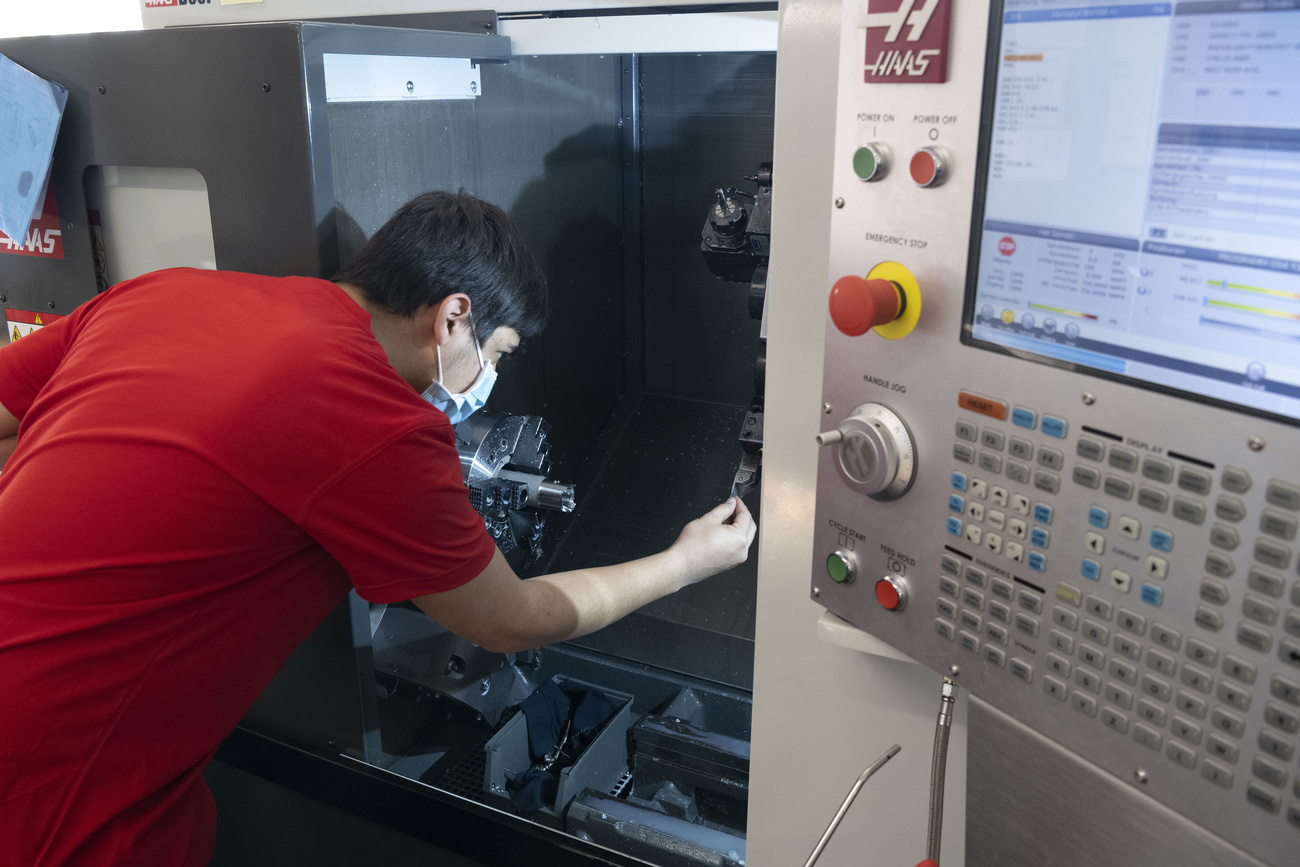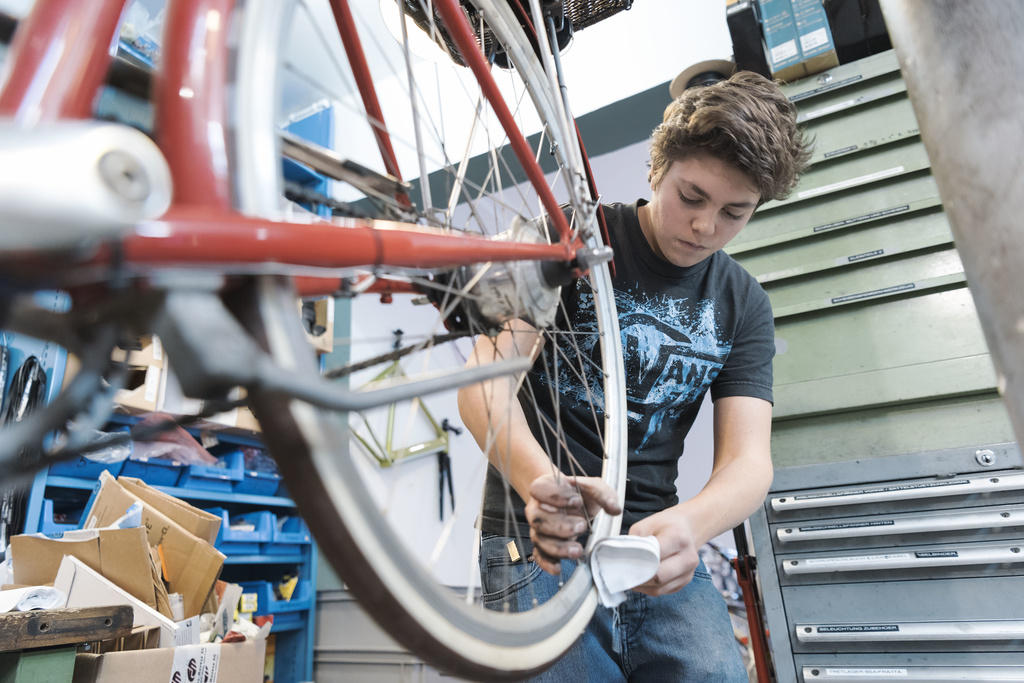
New apprenticeship data highlights evolving Swiss labour market

For the first time, the percentage of the working population with a higher education qualification has surpassed those who opted just for an apprenticeship, new Swiss figures show.
Increasing numbers of young people are choosing the Swiss baccalaureate (school leaving certificate which opens the door to university), university and then job track, because it’s easier or because it’s considered more prestigious. But still around two-thirds of school leavers choose vocational training: an apprenticeship and then a job. Some apprentices go on to higher education via extra training.
Data from the Federal Statistical Office, published in this Sunday’s Sonntagsblick, shows that last year 45.3% of the working population aged 25-63 had a higher education degree, while 44% had an apprenticeship on their CV as their highest qualification. Twenty years ago this figure was almost 60%.
Marco Salvi of the liberal think tank Avenir Suisse believes this change is the result of technical progress and the international division of labour: “More complex machines require higher qualifications, while many simple activities have either been automated or outsourced.”

More
Swiss teens have wider career aspirations than other Europeans
But there are other factors at work, such as immigration, according to George Sheldon, a labour market economist at the University of Basel.
“Until 1990, Switzerland recruited a large majority of foreign workers who had no professional training,” he told Sonntagsblick. “But this has changed massively. Today, it’s mainly highly educated people who come to Switzerland from abroad, mainly with mathematical, scientific and technical degrees.”
Economist Rudolf Strahm has a different view. He believes many of the people with high education degrees have already completed an apprenticeship beforehand.
“Apprenticeships have lost some of their share over the last few years and decades, but by no means as significantly as the figures would suggest at first glance,” he told the paper.
Under Switzerland’s dual-track apprenticeship systemExternal link, young people combine on-the-job training with lessons in a vocational school. In turn, they receive a high-quality vocational education, which then gives them direct access to the labour market. This is one of the success factors in the Swiss economy. An apprenticeship lasts two to four years, depending on the profession, and guarantees a very low youth unemployment rate.External link
If you choose the vocational path, you can always reach successive higher levels of education through extra training, such as the federal vocational baccalaureateExternal link which allows students to study for a bachelor’s degree at a University of Applied Sciences, Switzerland’s more practically orientated universities.
Strahm is convinced that the Swiss dual education system will still be very important in 20 years’ time.
“People with vocational training and further education are in high demand on the Swiss labour market, often even more in demand than university graduates,” he said.

More
Are 14-year-olds ready to make a career choice?

In compliance with the JTI standards
More: SWI swissinfo.ch certified by the Journalism Trust Initiative






























You can find an overview of ongoing debates with our journalists here . Please join us!
If you want to start a conversation about a topic raised in this article or want to report factual errors, email us at english@swissinfo.ch.